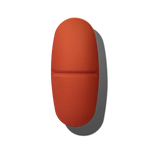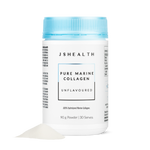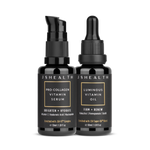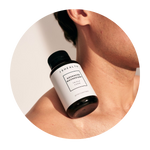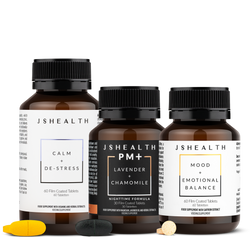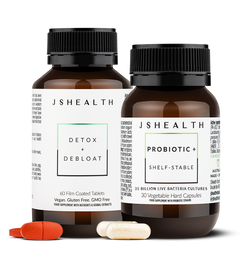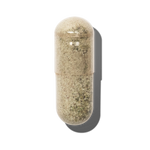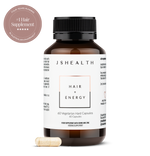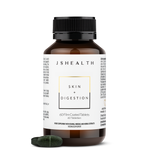The Impact of Stress on Your Hormones
The effects of stress on your overall state of wellbeing should not be underestimated. Stress is an incredibly powerful bodily response that has a ripple effect onto all of your operating systems, including your hormones. Understanding what is happening when you get stressed, reasons why your body is under stress, and how to reduce stress are key for achieving happy, healthy and balanced hormones. Let’s dive in...
What happens when we get stressed
Any internal or external stimuli that causes a biological response is known as stress. Depending on the type, timing and severity of the stimulus, stress can lead to various actions on the body.
The body’s autonomic nervous system is broken down into the sympathetic nervous system (SNS) and the parasympathetic nervous system (PNS). In times of stress, the SNS activates and is responsible for the fight or flight response which can cause hormonal and physiological changes. This can manifest into increased heart and respiratory rates.
As the body continues to perceive the stimulus as a threat, the hypothalamus in the brain activates the stress response system. Cortisol is released from the adrenal cortex (largest part of the adrenal gland) and allows the body to stay on high alert.
How this impacts your hormones
The hypothalamus-pituitary-adrenal axis in the brain regulates both production and secretion of cortisol (our stress hormone). It has a variety of effects on different functions throughout the body such as mediating the stress response, regulating metabolism, the inflammatory response and immune function. This can adversely affect everything from reproductive health to gut health. Below are some common consequences of excess stress.
Possible complications of too much stress
Reproduction:
Stress can put a strain on the reproductive system, as your body goes into a state of survival mode. A certain level of glucocorticoids (hormones that control the inflammatory response) are required for optimal reproductive organ function. When the balance is disrupted, so is fertility.
Skin:
Skin is the main organ for external stressors including heat, cold and pain. Skin mast cells (cells found in connective tissue that protect the body against toxins entering) are activated by stress, and in turn, they can produce stress hormones and inflammation. This could lead to skin conditions like acne, dermatitis, psoriasis and pruritus.
Menstrual Cycle:
Menstrual irregularities affect childbearing women, and this is higher among those under stress. Sudden weight loss, over-exercising, medical conditions and stress can influence a female’s ability to experience a healthy menstrual cycle. Stress has been linked with a variation in the length of the menstrual cycle, anovulation (absence of ovulation), quantity of blood loss, painful periods and premenstrual tension.
Immunity:
Those under stress are more likely to have an impaired immune system, and therefore suffer from more frequent illnesses. Studies have revealed that stress mediators can pass through the blood-brain barrier and exert their effects.
Gut Health:
Stress can negatively impact the normal function of the gastrointestinal tract and disrupt the hormones that regulate appetite. It can affect the absorption process of nutrients, mucus and stomach acid secretion, and contribute to inflammation. It may reactivate previous inflammation or accelerate the inflammation processes.
How to reduce stress
The following lifestyle practices can be beneficial in helping to reduce feelings of stress and promote relaxation. Enjoy spending time in nature, lighting candles around your home, enjoying a relaxing bath, listening to a guided meditation and aiming to reduce caffeine intake by enjoying just one coffee per day in the morning.
The JSHealth Anxiety + Stress formula is designed to support you when experiencing symptoms of mild anxiety, stress and irritability. It contains ingredients such as Passionflower which is used to calm the mind and nerves. It also contains Ashwagandha, which is an adaptogen to help the body adapt to stressful situations and support feelings of serenity.
References:
Yaribeygi H, Panahi Y, Sahraei H, Johnston TP, Sahebkar A. The impact of stress on body function: A review. EXCLI J. 2017;16:1057-1072. Published 2017 Jul 21.
Lee DY, Kim E, Choi MH. Technical and clinical aspects of cortisol as a biochemical marker of chronic stress. BMB Rep. 2015 Apr;48(4):209-16.
Whirledge S, Cidlowski JA. Glucocorticoids, stress, and fertility. Minerva Endocrinol. 2010;35(2):109-125.
Ruchi S, Renuka S, Heena R. Impact of stress on menstrual cycle: A comparison between medical and non medical students. Saudi J Health Sci. 2015;4(2):115-119
Yaribeygi H, Panahi Y, Sahraei H, Johnston TP, Sahebkar A. The impact of stress on body function: A review. EXCLI J. 2017;16:1057-1072. Published 2017 Jul 21.
Chen Y, Lyga J. Brain-skin connection: stress, inflammation and skin aging. Inflamm Allergy Drug Targets. 2014;13(3):177-190.
